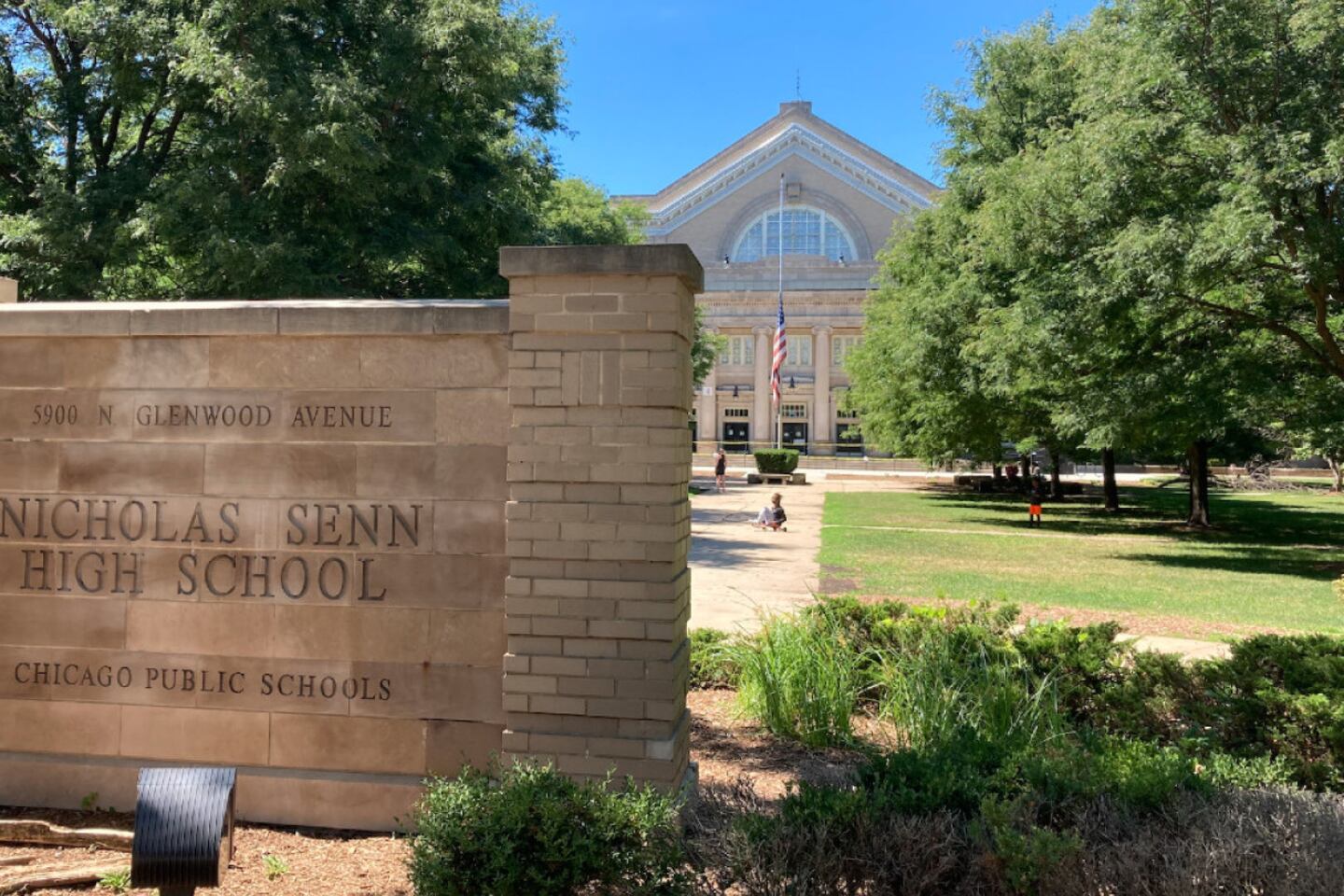This story was reported by Block Club Chicago, a nonprofit news site covering Chicago’s neighborhoods.
The local school council at one of Chicago’s larger high schools voted Tuesday to remove police officers from campus.
During a four-hour meeting, Nicholas Senn High’s local school council had to vote on whether to keep school resource officers. The motion did not receive the support needed to pass, meaning Senn has joined at least 10 other Chicago public schools that will remove police.
The vote to keep officers was 6-6-1, with the council’s student representative choosing to abstain from the vote. The abstention essentially counted as a “no” vote, and the measure to retain the officers failed to receive majority support, a CPS official told the council.
Public high schools in Chicago are voting individually on the fate of their school police officers. In June, the Board of Education voted narrowly against removing officers district-wide, but it allowed each school to make its own decision on officers.
At Senn, proponents of removing police said doing so would make Black and Brown students more comfortable while working to reform local police practices. Supporters of police in the school said the officers bring valuable knowledge of outside threats and provide first responder resources to Senn.
Senn’s surveys on the topics of police in schools showed mixed results.
A poll of more than 350 students showed 45 percent wanted officers removed, while 25 wanted them to stay and 30 percent were unsure.
More than 58 percent of parents responding to the survey said they wanted police to remain at Senn, while 28 percent said they wanted them removed and the rest were unsure. Sixty-one percent of teachers who responded said they either wanted police removed or preferred removal but wanted students to make the call.
Senn Principal Mary Beck said the number of students who wanted police to remain or were unsure made her lean toward keeping the officers. Beck voted to maintain the officers in the school.
“My job as the principal is to keep everyone safe,” she said. “There’s not a majority … that’s 100 percent to remove.”
One of the flashpoints in the discussion was a February incident where a teacher told a Hispanic student to “go back to your country.”
The incident caused a mass student sit-in and police were called to help with a confrontation. A 15-year-old girl was arrested during the sit-in after she pushed a 55-year-old school administrator trying to break up a fight, causing the man to fall, according to Chicago Police.
David Gregg, a teacher representative on the council, said the officers who responded to the sit-in made disparaging remarks about the students, calling them names and insinuating they will not be productive members of society.
“In my view, the police only served to escalate tensions,” he said. “Our students are not deaf and are not blind. They know how they are viewed by police.”
Kevin Kaufman, a parent representative on the school council, said “the greatest threat to students this year was a teacher.”
“How do we protect against that?” said Kaufman, who voted to remove the officers. “This is a really hard decision. It was not on the brochure when I signed up for the” local school council.
Terrell Walsh, the technology coordinator at Senn and a member of the council, said officers came in handy when the school had gang problems in the past.
Officers are used less now because of restorative justice practices and other improvements at the school, officials said. But they are still a welcome addition to the campus, Walsh said.
“The police presence at Senn has been to deescalate,” he said.
The district announced plans Monday to cut its school police program by more than half in the next fiscal year by removing payment for officers on days they are not serving in schools, and no longer paying for mobile patrol officers.
The budget proposal — part of a broader $8.4 billion spending plan unveiled Monday by the district — is the first indication of how the district will modify its school police contract for next year, with coronavirus dramatically changing the landscape for schools alongside an increased spotlight on the cost of school policing.





